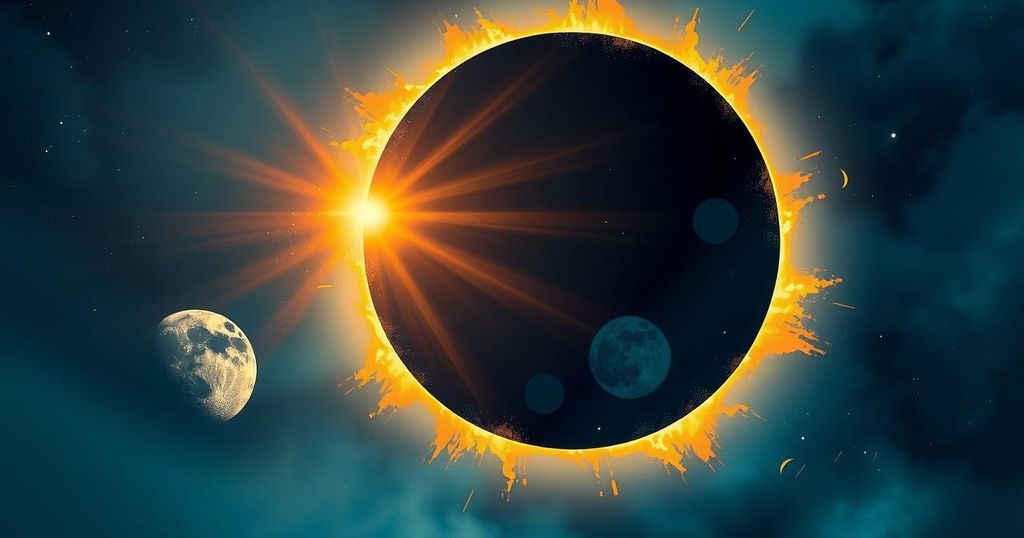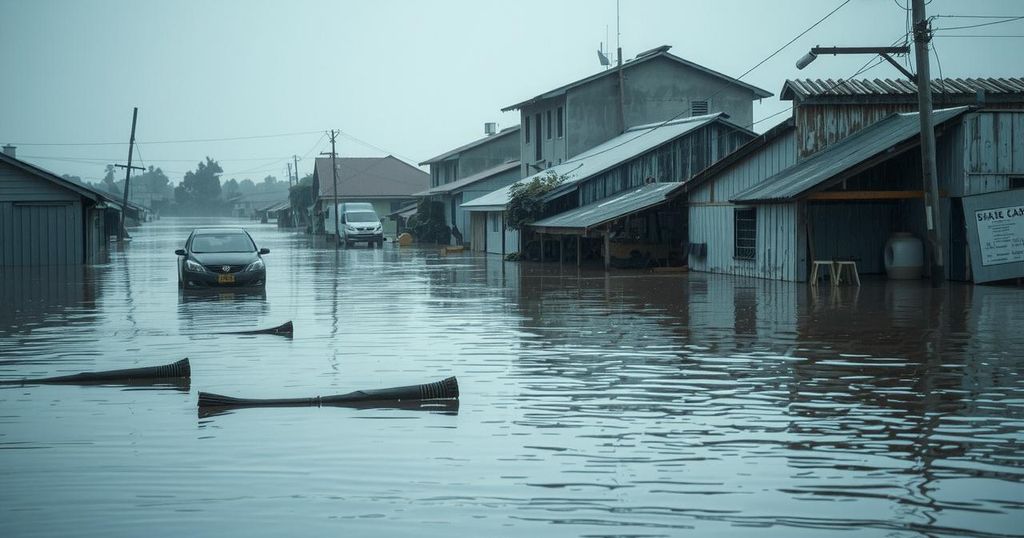Partial Solar Eclipse to Grace Northern Hemisphere Today
A partial solar eclipse will occur today, visible from eastern Canada to Siberia, lasting about four hours. It is the first eclipse of 2023, with partial views in France expected. To safely observe the eclipse, proper eye protection is essential. The event follows a red lunar eclipse earlier and precedes a total solar eclipse in 2026.
Today, a partial solar eclipse will occur as the moon partially obscures the sun, visible in areas of the northern hemisphere from eastern Canada to Siberia. This event marks the 17th eclipse of the 21st century and the first this year, lasting approximately four hours from 8:50 AM to 12:43 PM UTC.
According to Florent Deleflie, an astronomer at the Paris-PSL Observatory, the eclipse will first be seen by residents of Mauritania and Morocco, concluding with those in northern Siberia. The peak visibility will occur at 10:47 AM UTC over northeastern Canada and Greenland, where about 90% of the sun’s disk will be obscured, though it will not lead to complete darkness.
A solar eclipse happens when the sun, moon, and Earth align, but in this instance, the alignment does not permit the moon’s shadow cone to reach the Earth’s surface, thus preventing a total eclipse. Deleflie explains, “the alignment was not perfect enough for the shadow cone to touch the Earth’s surface. It will remain in space, meaning no total eclipse will occur anywhere at any time.”
In France, the eclipse will be visible from 10:00 AM to 12:00 PM UTC, with 10% to 30% coverage of the sun’s disk depending on the location. Although the obscuration will not drastically alter visibility to the naked eye, proper eye protection is essential due to the potential harm caused by the strong sunlight. Deleflie cautions, “The slightest defect in the surface of the glasses, even if it’s a microscopic hole, can cause eye burns.”
This phenomenon follows a recent total lunar eclipse that gave the moon a red hue, with Deleflie noting that this occurrence is typical as the lunar cycle progresses. The last partial solar eclipse in mainland France took place on October 25, 2022, while a total solar eclipse is slated for August 12, 2026, although it will not pass through France yet will obscure 92% of the sun in Paris and 96% in Marseille.
The partial solar eclipse today represents a significant astronomical event, with visibility across vast regions, including parts of the northern hemisphere. While the coverage of the sun will be substantial, precautions must be taken to protect one’s eyes. This eclipse highlights the natural phenomena connecting celestial bodies, as we anticipate future eclipses in the coming years.
Original Source: www.jordannews.jo




Post Comment